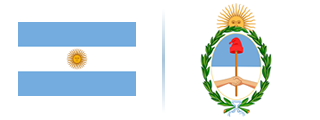Last Update: September 2025


| International Covenant on Economic, Social and Cultural Rights | International Convention on the Elimination of all Forms of Racism | Convention on the Rights of Persons with Disabilities | Convention on the Elimination of all Forms of Discrimination against Women | Convention on the Rights of the Child | International Convention on the Protection of the Rights of All Migrant Workers and Members of their Families | Constituent Agreement of the Development Fund for Indigenous Peoples in Latin America and the Caribbean |
| 8 August 1986 | 2 October 1968 | 2 September 2008 | 15 July 1985 | 4 December 1990 | 23 February 2007 | 18 March 1996 |
| View details | View details | View details | View details | View details | View details | View details |
Year of Latest Observed Constitution |
Social Housing |
Work and Social Security |
Public Health |
Public Education |
Social Development |
Children and Adolescents |
Youth/Young Adults |
Women |
Older Persons |
Persons with Disabilities |
Afrodecendants and Indigenous Peoples |
Migrants |
| 1853 | ||||||||||||
| View details | View details | View details | View details | View details | View details | View details | View details | View details | View details | View details | View details |
Children and Adolescents |
Youth/Young Adults |
Older Persons |
Women |
Peoples with Disabilites |
Afrodescendants and Indigenous Peoples |
Migrants |
Public Education |
Work and Social Security |
Social Housing |
Public Health |
Social Development |
|
| Legal Instrument | Ley de Protección Integral de los Derechos de Niñas, Niños y Adolescentes | Consejo Federal de la Juventud (Ley núm. 26227) | n.d. | Ley 26.485- LEY DE PROTECCION INTEGRAL A LAS MUJERES | Ley Sistema de Protección Integral de los Discapacitados | Ley No. 24.515 de 1995 - Instituto Nacional Contra la Discriminación, la Xenofobia y el Racismo | Decreto Nº 616, 'Reglamentación de la Ley de Migraciones N 25.871 y sus Modificatorias' (2010) | Ley de Educación Nacional | Ley de Regimen Laboral | Ley de Vivienda Social | Ley de Derechos del Paciente | n.d. |
| Law | Law | Law | Law | Law | Law | Law | Law | Law | Law |
| Country | Argentina |
| Main authority | Consejo Nacional de Coordinación de Políticas Sociales |
| Year of creation | 2002 |
| Coordinating authority | Delegado del Presidente |
| Members | #NAME? |
| Country | Argentina |
| Main authority | Ministry of Human Capital |
| Year of creation | 2023 |
| Mission | Desde el Ministerio de Capital Humano nos planteamos como objetivo centralizar, alinear e impulsar políticas publicas correspondientes a las áreas de educación, trabajo, cultura, niñez, adolescencia y familia, desarrollando políticas de protección y fortalecimiento con el fin de asegurar la adecuada integralidad, coordinación e impacto en el diseño y la ejecución de los programas sociales. |
| Incumbent | Sandra Viviana Pettovello (2023) |
| Population segment | Children and Adolescents |
Youth/Young Adults |
Older Persons |
Persons with Disabilities |
Women |
Migrants |
| Main protection mechanism | Secretaría Nacional de Niñez, Adolescencia y Familia (SENNAF) | Dirección Nacional de la Juventud (DINAJU) | Dirección Nacional de Políticas para Adultos Mayores | Comisión Nacional Asesora para la Integración de Personas con Discapacidades (CONADIS) | Ministerio de Desarrollo Social | Dirección Nacional de Migraciones |
| Legal Instrument | Ley 26.061 de Protección Integral de los Derechos de Niñas, Niños y Adolescentes y Decreto 415/2006 | Consejo Federal de la Juventud (Ley núm. 26227) | Ley de Protección a la Ancianidad - S-3844/12 | Ley 22431, Sistema de protección integral de las personas discapacitadas | Decreto Nº 616, 'Reglamentación de la Ley de Migraciones N 25.871 y sus Modificatorias' (2010) |
|
Technical-operational dimension | |||||||
| Unique Registry of Participants | Sistema Integrado de Administración Financiera /b | Sectoral Plan for Social Development | Transparence - system for accessing public information from the State | Integrated Social Information System |
Evaluation mechanisms for social programs |
|||
General |
Sectorial |
General |
Sectorial |
|||||
| Ministerio de Capital Humano | ||||||||